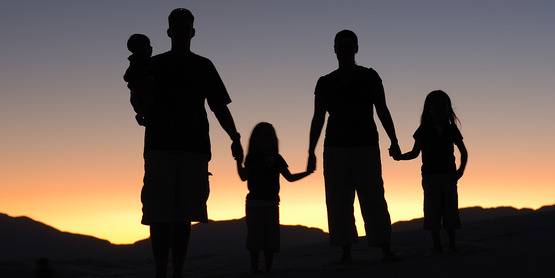By Rachel Ciconco Mbabazi
The advent – unwanted, unexpected and unprecedented in our lifetime – of SARS-CoV-2, the virus that causes Covid-19, has upended the regular home lives of many Ugandan families. What we have been doing for decades, waking up every day to go to work, taking children to school on weekday mornings, earning a fixed salary if employed, opening up our shops, offices and other businesses daily, going to church on Sunday or to the mosque on Friday, and all the activities around which our lives are organised, has changed. Nothing is the same. At no point in our recent history has any occurrence, be it war, famine, or some other natural or man-made disaster caused such upheaval in our lives. On 18th March, 2020 the President of Uganda announced the shutting down of schools among other things, effective 20th March, thereby sending over 15 million children back home. Working parents dropped everything and scrambled to organise daily care for their children so that they could go back to work. Ten days later, on the night of 30th March, a full lockdown started. This meant that apart from children staying home from school, there was no work, church or business for most people. Only essential services remained open. A curfew was imposed and the use of private cars was banned. Millions of people sat home, day in and day out, following any and all news that they could obtain on the new coronavirus. We watched endless hours of international news on the devastation in China and Italy, and bated our collective breath as we waited for our cases to rise. Like others the world over, Ugandans did not realise that the Covid-19 pandemic would bring about a “new normal”.
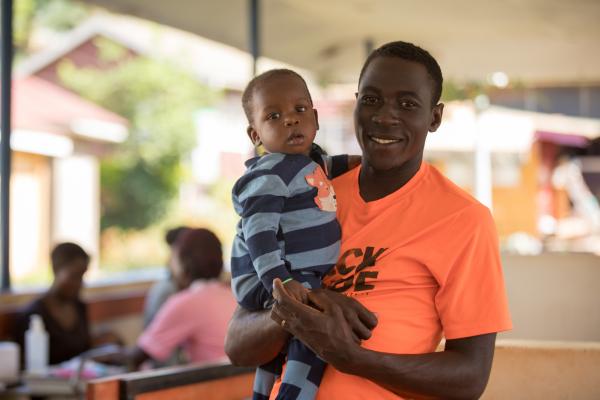
The term “New Normal” is believed to have been coined post 911 to describe a new way of living in a time of crisis. The airplane “bombing” of the World Trade Centre buildings in New York City on September 11th, 2009, was a time of major crisis that changed the way of life in America. The idea behind the “new normal” for Americans at that time was to accept that many things had changed and that said change was irreversible. Ugandans cannot but acknowledge that any assumptions we had about our lives prior to April this year were rendered obsolete overnight. We are now forced to adapt to this changing world and must, somehow, in some way, endeavour to maintain a degree of normalcy in our family and work lives. If anyone had told a restaurant owner in 2019 that running a business that depends on large numbers of people congregating on one’s premises was a bad idea, the owner would have simply laughed. It was inconceivable to anyone that a nationwide curfew would be imposed in a time of peace, or that the majority of us would not be able to spend time with extended family for months. At that point, no one imagined a concept like “social distancing” could exist. What about the change from face-to-face, in-person and in-class teaching of our school going children to suddenly having them stay at home for months on end? Who knew that the Ministry of Education would have to switch to online and out-of-class teaching models in a matter of weeks? Almost six months into the pandemic in Uganda, the Ministry of Education is yet to find a fitting solution for the millions of children who lack access to the required materials including laptops, televisions and radios. Creating a new online teaching model is one thing, but first the ministry has to grapple with the main access issues for the majority rural population such as electricity and affordable mobile data connectivity. This will be no easy feat. The “new normal” situation has affected everybody in one way or another, but none as much as parents to school going children.
In the various cultures in Uganda, parenthood is a status to be taken very seriously. We are brought up to want to have a family with many children. We know as young adults that our duty to our children will include taking them to the best schools we can afford, supporting them in all ways to excel in their studies, providing them with plenty of food, a decent home environment and more. In many ways, Ugandan parents measure their worth as human beings by how much they do for their children. When it came to schooling, our duty before the pandemic was to find the right schools, get the children admitted (which is a subject for an entire article) and ensure all the provisions required were on hand at all times. Many parents opted for boarding schools where the children spend about three months at a time before returning home for short breaks. Others opted for day schools which meant the additional responsibility of dropping them off and picking them up. However, when it came to the knowledge being imparted to our children, this we left to the teachers. Ours was to supervise and ensure that homework had been done properly and the child was doing well in the eyes of the teachers. The pandemic changed that. Suddenly we the parents are now in charge of the child’s schooling. We have to know what the curriculum is, at what stage the child should be and must work with the child to complete given assignments. This, of course, applies to those who have children in private schools running online programs. Many such parents who were thrust into the role of educator found it very frustrating. The learning curve was steep and most of them had to master the art of teaching that requires patience and skills that they lacked. Other parents whose children’s schools are yet to come up with an effective distance learning solution were left worrying about a dead year.
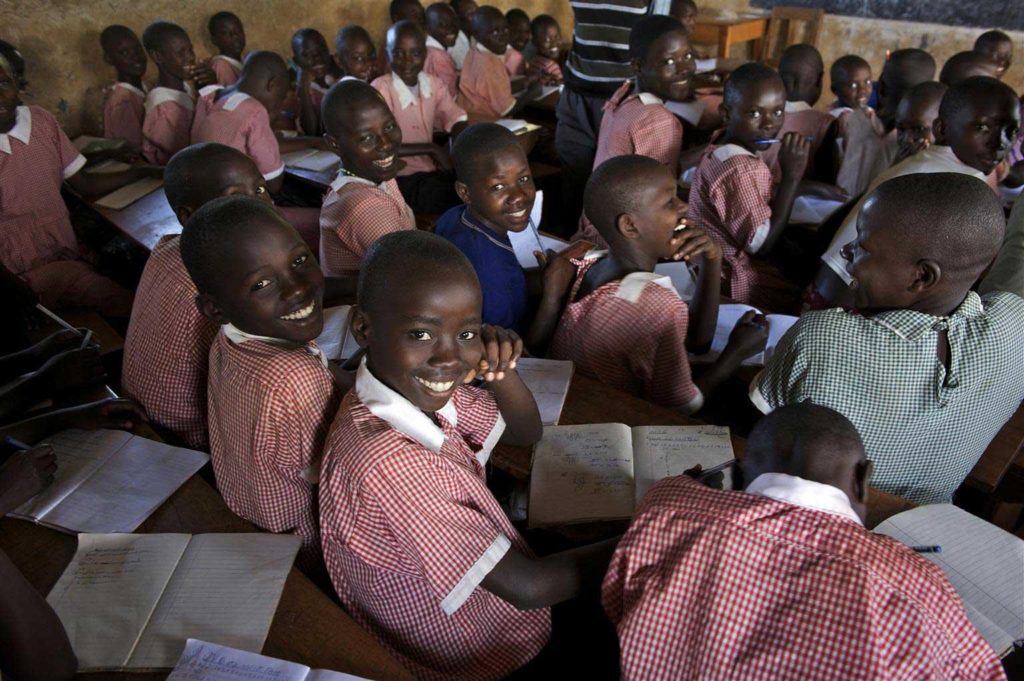
Whichever situation one finds oneself in as a parent, it is a time of angst. The only hope for many is that schools reopen. Often one will hear parents lament about the continued closure of schools and the seeming hesitance with which the president and his team have approached this issue. And yet, it is every parent’s nightmare for their child, or worse children, to catch Covid-19. There is nothing as destabilising as the sudden call from school in which the nurse informs you that your child has developed a high fever. Nothing is worse for a parent than waking up early in the morning, expecting the morning routine to be…well, routine..and finding out that your little baby is ill and needs to see a doctor immediately. Oftentimes parents will hesitate to admit to others their true reactions to these untimely occurrences that in one leap cause the immediate cancellation of activities that are vital to one’s future financial wellbeing. However, these are the accepted downsides of being a parent. Now imagine if your child catches the new coronavirus, how much more the commotion? The very same parents wishing for the reopening of schools are afraid of the risks and implications of their children developing Covid-19. Living with uncertainty about how long the children will be out of school, how much of the curriculum they will miss, whether or not the concerned ministry will figure out a solution soon or, as has been hinted at on several occasions, opts for a dead year, is daunting for Ugandan parents. Unfortunately, with our country’s recent entry into a new phase of the disease and the growing numbers of the infected and the dead, this uncertainty will remain with us for some time to come.
As if the fear of the seriousness of the disease itself and the apprehension regarding the future of the children’s academic life is not enough, every parent is now faced with having children at home all day long. This has its attendant problems. The first, and by no means the most frustrating, is what to do with them. This is one of the things parents normally think about over the long holidays. It is not new to wonder if your children are not frying their brain cells watching television all day or in some cases playing endless games on gaming consoles. While in the past some parents arranged part time jobs, sports training and long trips up country, most of us consoled ourselves with the fact that not only was it a temporary situation, but that the children deserved a break from the grueling academic life they go through. Watching children running around, playing or spending time exploring nature made you almost give yourself a pat on the back for not being too strict a parent. Now that they have been at home for six months and more, parents are beginning to question themselves. Is it really acceptable for children to spend days upon days playing around? Shouldn’t they be learning something?
Ask any mother how her life has changed since March and the first thing she will tell you is that her workload has doubled, if not tripled. Parents are overwhelmed by having to organise breakfasts, lunches, dinners and snacks. You realise, all of a sudden, just how much growing children eat. Parents have taken to locking food supplies up in storage rooms to keep them away from nocturnal teenagers who get sudden cravings at 2 am. Many have began to portion out food for meals so as to reduce consumption at home. We wonder when they developed the bad habit of eating at all hours. In times like these when we worry about finances, if one is not careful children can eat you into debt quickly.
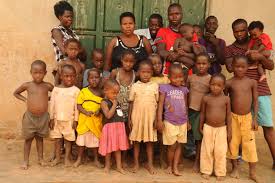
Having children in the home 24/7 is challenging when it comes to the increase in utility expenses. We do not realise how much we save in water and electricity bills while the children are at school. Stories abound about how wasteful children can be if not checked regularly. Not only are you constantly cooking, if you are not keen all the appliances in your home will be running concurrently. The television, radio or music player, the water heater, etc. Most of the time the television is watching itself. Though incomprehensible to an adult, it appears that to a child television may be the background noise needed as he or she does other things. Sockets are turned on – whether or not they are running fans, charging phones or doing absolutely nothing. Bedrooms will remain lit if you are not vigilant enough. It would seem that to children the default position for all gadgets is ON. Fathers and mothers alike have had to become full time inspectors in their homes. It is a known fact that children are energetic. What has become more obvious now is how much their boredom can cost us. So we devise a daily inspection schedule and have added a whole repertoire of lectures on non-wastage of scarce resources to our usual parental chiding. Having children at home all the time is very expensive and requires some extreme mitigation measures from parents. This is the new normal.
Once the easing of the lockdown began at the end of May, about 60 days after it was declared, parents scrambled to figure out how much leeway to give themselves and their children for social interactions. Not everybody began to live as it was pre-Covid-19 because we knew that the new coronavirus was still out there. Children by their nature have few fears. They needed to socialise, to play football, to run around with neighbours, and to go visiting their friends. Parents began for the first time to question how well they knew the lifestyles of other families. Were they cautious enough? Did they limit the number of visitors entering their homes? Do they wear masks religiously? Do we? What if your child goes visiting and gets infected with Covid-19? Almost 3 months after the relaxation of the lockdown, most parents remain wary of social interactions. We simply do not know how to create a balance between protecting ourselves and our children, and still ensure that they have a joyful childhood. That being said, human nature does not allow us to self-isolate for long periods of time. So visits to close family and friends though limited in number have began once again. With Covid-19 now gaining a foothold in Uganda, it remains to be seen how social interactions will evolve.
The new normal is still being defined for us. We do not know if there will be an effective vaccine or treatment. And if there is a vaccine, we do not know for how long we shall be immune should we be lucky enough to get it. What if Covid-19 is like the seasonal flu forever mutating as if to evade any human efforts to inoculate us against it? There are many fears. To quote former US Secretary of Defence Donald Rumsfeld; “There are known knowns. There are things we know we know. We also know there are known unknowns. That is to say, we know there are some things we do not know. But there are also unknown unknowns, the ones we don’t know we don’t know.” Never has such a confusing statement made more sense than in these, the times of Corona. Yet as parents, we have no choice but to move ahead and sail these unchartered waters. For to cower and do nothing would be to fail in our duty to our children. So what does the acceptance of the new normal look like?
Let us first of all concede that the Covid-19 disease is nowhere near being fully understood. This means that at any point, new and terrifying findings can occur that will lead to the world around us being shut down once more. And even if the government never again issues another lockdown order, circumstances may force us to curtail our own activities and social interactions. We may have to institute self-isolation measures in our own homes. We could conceivably begin to see these lockdowns or times of limited social activities more as retreats. A time to re-evaluate our old ways of life and change them. Perhaps we should rethink how our children are schooled and begin to take on more responsibility at home. While the shutdown of schools has disorganised many a parent, we cannot ignore the fact that there have been some blessings. Those whose children attend day school have saved a lot of money in transport costs. Not only that, they have saved time. Many households in Uganda wake up at 5 am in order to get children in school before 7 am. The nightmare of transport logistics has been put on hold for now. If we could find a way to ensure our children are getting the education they need while staying at home, it is not unlikely that some parents would choose the option of home schooling. We did not know that we could teach and inspire our children. It was not until we were forced to become their teachers at home that we began to realise that we can do it. Acceptance of the new normal means embracing, or at least acknowledging, the fact that if it comes to it, we are capable of taking on our own children’s education for a time.
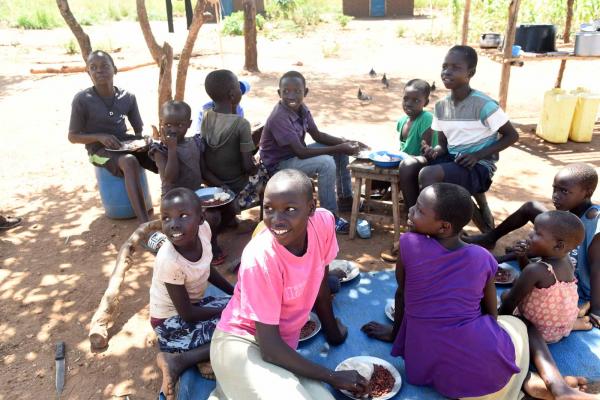
Another blessing of the school closures, though an unintended consequence of the shutdown, is that very young children have not been getting sick as often. Parents know that they will have to deal with colds, upset tummies, viral infections and more for at least the first seven years of their child’s life. These diseases occur even more often when the child begins to go to school. Many a parent of such young children will testify that their child has not gotten sick once since the school closure early this year. If that is not proof positive that social distancing works, what is?
The new normal can be a time of transformation. Granted it came upon us suddenly and without permission, we have no choice but to modify our way of life. Traditional gender roles have undergone a drastic change in the last 6 months. Fathers are staying home more, interacting with the children and taking on parts of the caretaker role usually left to mothers. Mothers are, of course, faced with additional work but are now spending more time with their children too. Whether we like to admit it or not, the school system along with our work schedules had taken us away from our children. It has therefore been a blessing in disguise that Covid-19 made it possible to relate with our children not only as parents but also in the new role of teachers.
The emergence of Covid-19 has forced us to change our family lifestyle. Every family has, if you will, an organisational culture of sorts. That culture has been edged out by the new reality, the new normal. Our spending habits, meal times and preparation, evening activities and much more have changed drastically. It is now on our shoulders as parents to make the best of it. We must actively take charge and intentionally invent new customs and traditions, a whole new family culture. While it seems like an impossible task, it is not. It cannot be, for we have no choice. What we must not do is to give up. We must all understand that we can only do the best that we can in our various capacities to survive this pandemic and that the best we can do will be enough for us all to emerge triumphant in the new normal.
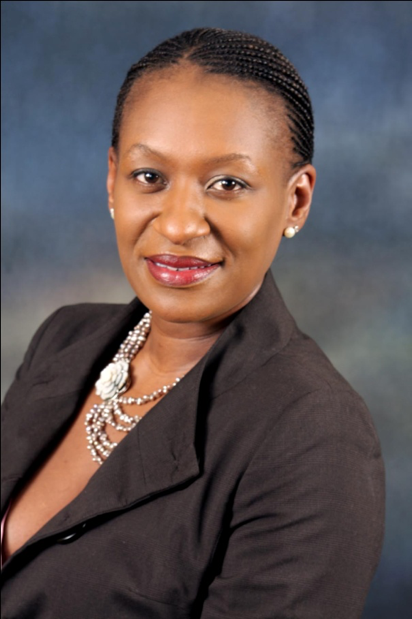
Rachel Ciconco Mbabazi is a contributing writer with wide experience in business, governance and politics. You can reach Rachel on email: ciconco@gmail.com.


